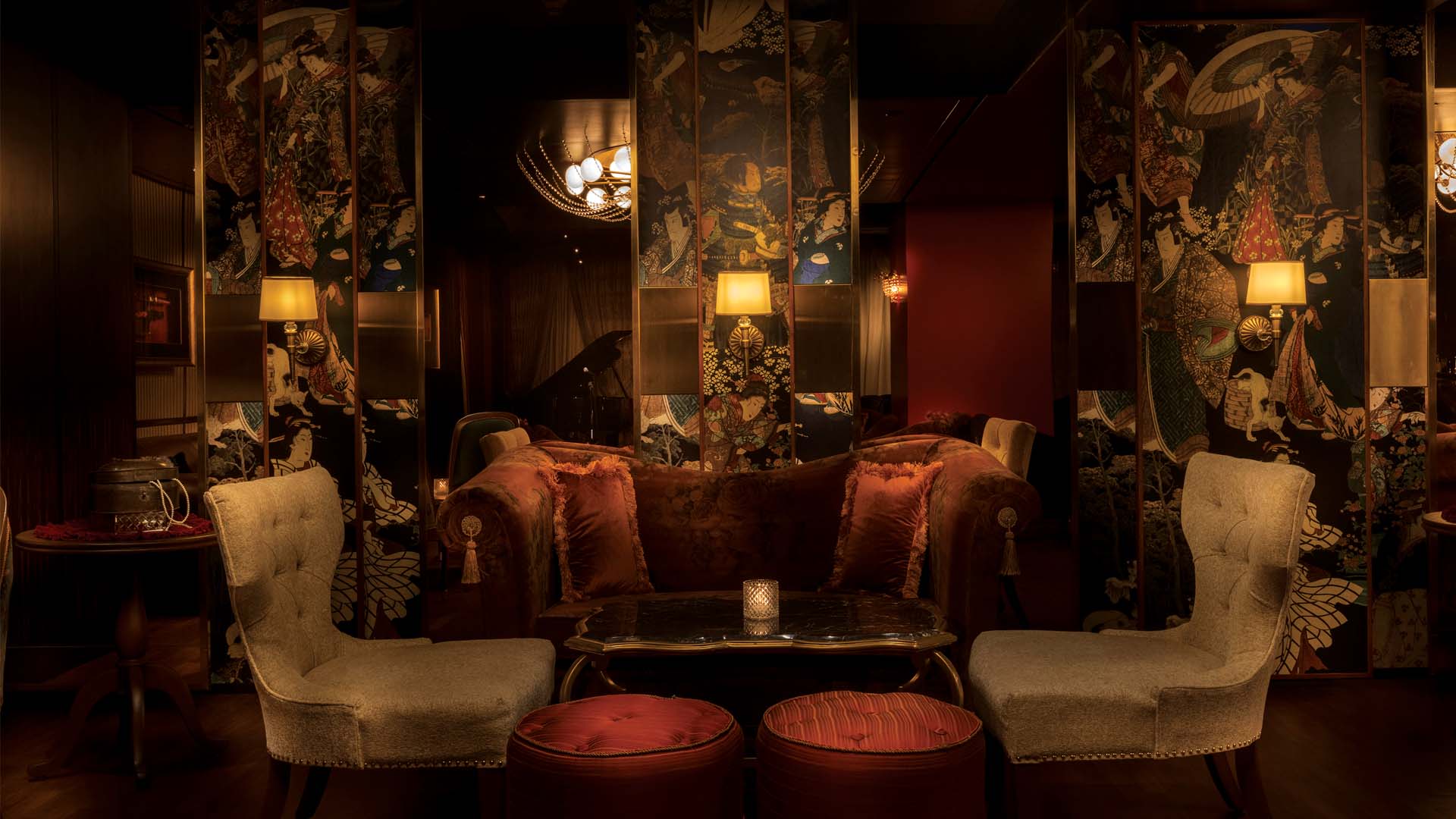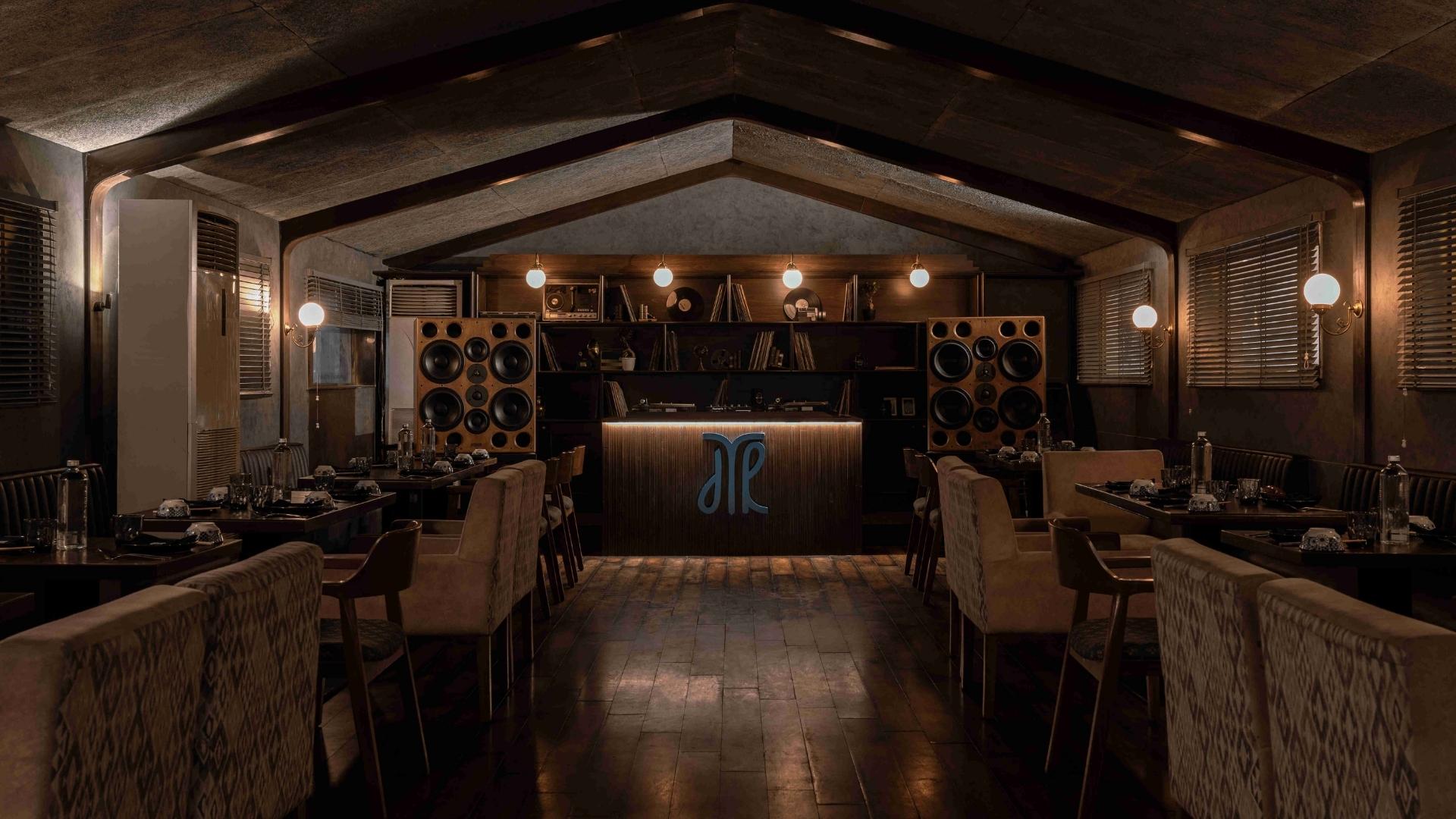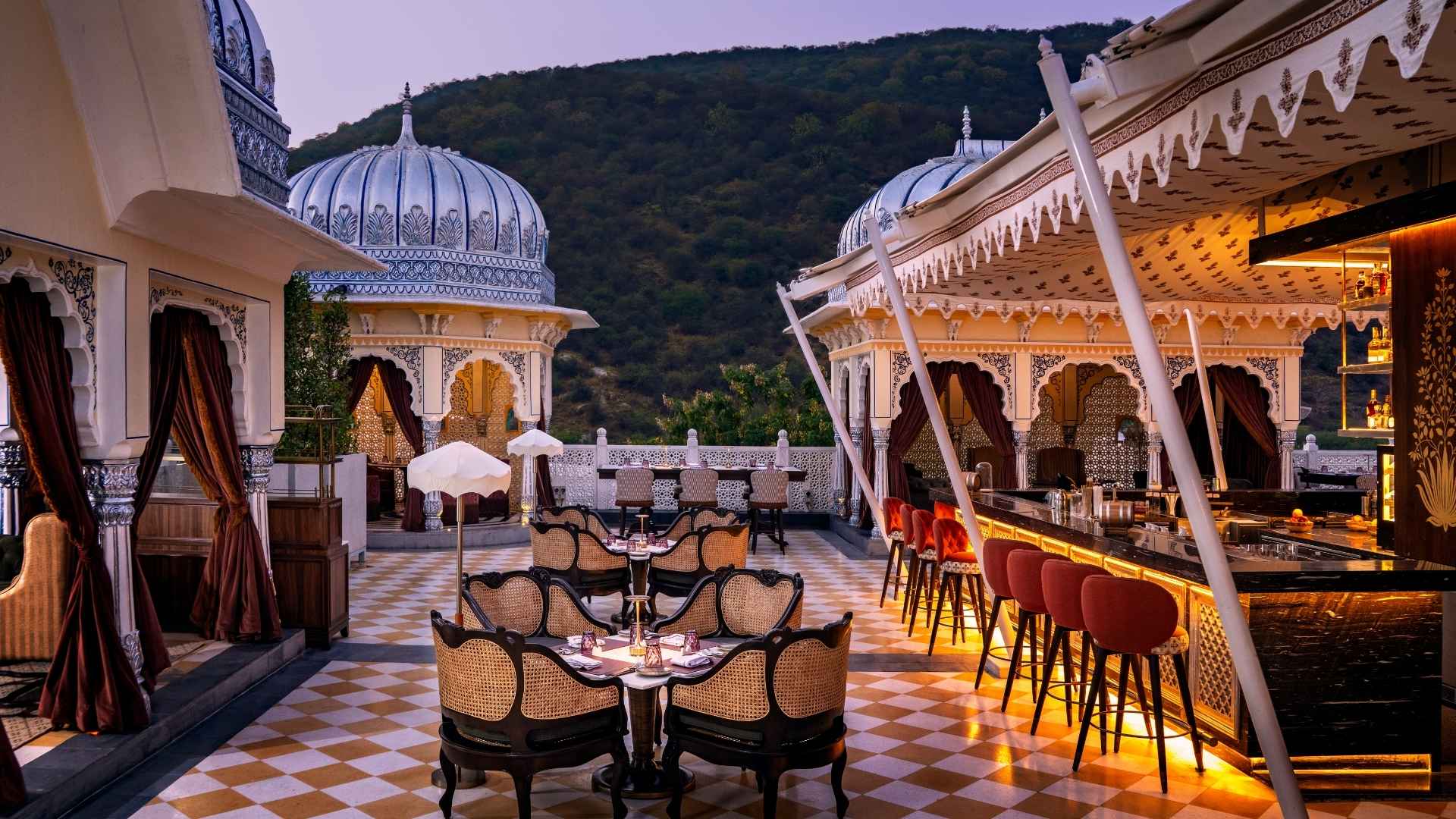Dubai’s Avatara has a Mumbai Outpost
In a world increasingly driven by climate concerns and the movement against animal abuse, the one Michelin Star Indian vegetarian fine dining restaurant explores the future of sustainable and plant-based dining.
By Deepali Nandwani
What would a checklist for a great restaurant look like?
Ambience? Good food? Attention to detail? Innovation?
Avatara, the world’s first Indian vegetarian fine dining restaurant to have won a Michelin star, checks all the parameters.
The Dubai-based restaurant from Passion Group (which also owns Trèsind Studio and Bistro Aamara) has just opened its Mumbai outpost. Within its plush interiors are an expansive wine bar, two private dining spaces, walls embossed with abstract ocean sculptural elements and mermaid paintings, invoking the city and its intimate relationship with the sea.
While the Dubai flagship serves a 16-course degustation menu, in Mumbai the menu features 14 courses. It eschews the oft-featured mushrooms, eggplant, paneer, onion and garlic, focussing instead on unusual flavour profiles. Chef Sanket Joshi, who heads the Mumbai kitchen, says, “Onion and garlic have an overwhelming flavour profile that can dominate the flavours of other vegetables. The challenge lies in cooking vegetarian cuisine without them.”
Of the 14 courses, 11 are referenced from the menu of the Dubai flagship, while three pay homage to Mumbai.


test caption
Avatara’s biggest innovation, in my view, is its inventive use of largely ignored vegetables, at least on restaurant menus: karela, turnips and jackfruit, as well as unknown ingredients such as the sea buckthorn that's native to the mountain regions of India. Avatara is a perfect blend of familiar ingredients served in a modern form, suffused with flavours that are comforting and yet surprising. The thought I was left with: ‘Can my karela taste as good?’ Or ‘How can the thukpa feel so comforting and yet redolent with flavours I have rarely experienced before?’
Chef Joshi says, “Chef Himanshu Saini (who helms two Michelin starred Trèsind Studio) and Chef Rahul Rana (who heads Avatara in Dubai), sought to challenge existing norms by serving soulful vegetarian food, cooked using interesting techniques and presented beautifully. The journey from the first course to the last is meant to be transformative as you explore and discover different flavours, the sensation of hot and cold served together in the same dish, and the many ways in which the vegetables have been used. The idea we want to convey through the food and plating is that Indian vegetarian food can also look pretty and taste exquisite.”
While every course was a revelation, among my favourites on the menu were:
◊ Naivedhya or offering to the gods, featuring the soft as a cloud Makhan malai, popping mishri, and panchamrita.
◊ Alpahara or bhindi (okra) stuffed with a rather subdued Maharashtrian chili thecha, alu vadi topped with flowers from Uttarakhand and sol kadhi with kokum-infused green apple.
◊ Karuvelvilas (bitter gourd), which is layered hot and cold, sweet and bitter—a ghee roast karela served with mango sambhar gelato and dosai crisps in floral shape.
◊ Panasa or jackfruit stuffed into a momo and served in a sea buckthorn thukpa, bursting with tangy and sweet flavours.
◊ Bal Mithai, an Uttarakhand classic. This version, by Chef Kamlesh Singh, Avatara’s mithai chef, is low on sugar and high on the goodness of rich, creamy khoya of the mithai.


The restaurant has paid equal attention to the non-alcoholic beverage menu with interesting brews such as the delicate Kashmir Kehwa kombucha; Berry Chang made from fermented rice and berries; Alphonso Kvass, a Russian fermented drink infused with Alphonso mangoes; and my favourite, an almond milk chaas (buttermilk) served with lime, fresh mint, a secret spice mix and ginger.
Ingredients such as vegetables, millets and spices offer limitless possibilities. In a world where a climate crisis and the growing movement against animal abuse are motivating people to adopt a more sustainable plant-based lifestyle, Avatara explores what the future of dining could look like.


































